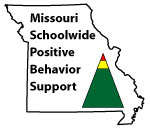
Don’t you think the church building should be a welcoming place? The building can be as warm and pretty as we want to make it…but it isn’t until we have a warm and friendly church (the people) that people will feel accepted. I imagine that every one of us has visited a church service or Bible class where we did not feel accepted. It didn’t feel like you belonged there. It didn’t feel like the regulars knew you were a visitor. That church was cold and unwelcoming, and you felt distant and ignored.
As members of the Lord’s church, we must not allow that to be the case. We are familiar with one another passages in Scripture. In fact, the command to “love one another” is the most frequently written. Plus, believe it or not, “Greet one another with a holy kiss” comes in second as far as the number of times it is repeated. Two apostles write in five letters to “Greet one another with a holy kiss.”
Hopefully, by now, you understand that this is simply a way to tell us to greet each other with warmth. The word holy emphasizes that this kiss (or handshake or hug) has no sexual overtones, but that it is a pure and meaningful greeting. What we need to see, however, is that it is an imperative. Through inspiration of the Holy Spirit, we are commanded by Paul and Peter to take initiative and approach people. Don’t wait for somebody to make the first move. A friendly person acts first.
Too often, we make it into a game. We test our friends. We say to ourselves, I’m not talking to anyone until they talk to me first. We test them. And that’s a game we will lose every time!
Follow along with Paul in Romans 16 (because the 16th verse doesn’t stand alone). If you are good at counting, you may find as many as 16 times that the apostle uses the word greet in just the first 15 verses. In fact, he greets by name a total of 26 individuals or groups.
But let’s not become so rigid. It is a command, but that’s not the only reason we should each become greeters. We should never think, The only reason I’m being friendly to these people is because Paul says I have to. We could easily create a list of practical methods by which we can improve our greeting skills, but there are some great reasons for the command. Let’s see four of them in action.
First of all, when we greet people, it is because we want to acknowledge them. I don’t care how introverted or extroverted a person is, no one wants to be ignored or unnoticed. It’s interesting to break down Paul’s list of 26 people and groups in Romans sixteen. In verses 3-7, Paul extends his hand to break all kinds of cultural barriers. Half of the people on his list are either slaves or women. They have very little to offer in regards to their status - very little influence or power, but Paul reaches out to them. Some are Gentiles. Some are Jews. Some are even Romans (since we’re in the letter that is written to Romans), but Paul acknowledges them all. Every person on that list is important and needs to realize that Paul cares enough to mention them by name.
Next, when we greet people, we commend them. The example for this is in the first two verses of Romans 16. Just look at how the apostle treats Phoebe when he recommends her. It is the kind of behavior from us that turns someone’s bad day into a good one. You know from experience that a friendly smile or a cheerful greeting can brighten your day and make it easier to bear. How does it feel to know that somebody is genuinely happy to see you? No one should feel lonely, neglected, or overlooked in the church of Christ.
Thirdly, this is how we express affection. A holy kiss, as in verse 16, is more than a dead-fish handshake or a robotic greeting. Just as a kiss is an intimate exchange, our greeting should be more than a routine that we go through just because it’s a command and we have to do it in order to comply. Human touch is valuable to people. Shaking hands, hugs, pats on the shoulders - all are desirable for human interaction. Jesus reached out to people who were otherwise untouchable. Physically, lepers were contagious, but that didn’t stop Jesus. Kids were annoying to some, but Jesus wanted them close by. He even ate with tax collectors and treated them like friends. If you were visiting a congregation who welcomed you and made you feel special - perhaps even like a member of the family - wouldn’t you be more inclined to return?
And finally, related to the first three reasons, in our greetings, we help others (as well as ourselves) overcome isolation. The church took a hit when COVID swept the world into quarantine, and some people never returned, preferring instead the perceived peace that comes with a quiet Sunday morning at home. There are so many ways to communicate with people today, but some of those things that we might think keep us connected may actually contribute to isolation. Instant messages, social media, cell phones, smart watches, virtual meetings are all ways that keep us connected to other people 24 hours a day, yet they have kept us away from each other. Some of us are more isolated and disconnected than we’ve ever been. We need to be the ones to overcome the temptation to stay away from people - especially people in our church family - in such a way, opting to send a digital message through the cloud instead of establishing a direct contact in person.
Those are the reasons, but now for some practical suggestions to wrap things up:
- Every member is a greeter.
- Come early and stay late.
- Be impartial as you greet others.
- Greet strangers before friends.






































